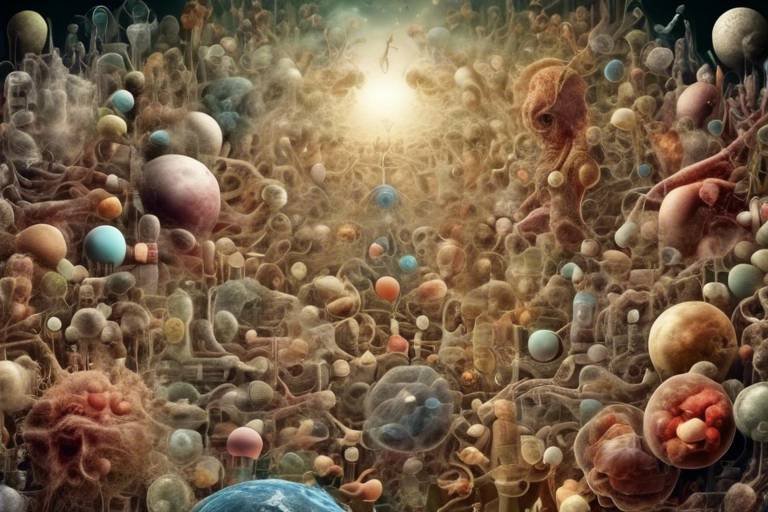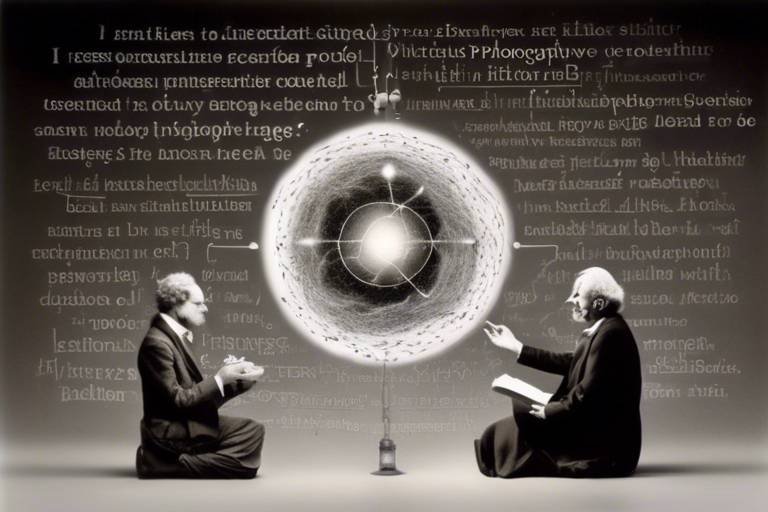The Fusion of Neuroscience and Philosophy in Understanding Human Nature
The intersection of neuroscience and philosophy is like a thrilling dance, where each discipline brings its unique rhythm to the floor, creating a mesmerizing performance that captivates our understanding of what it means to be human. Imagine diving into the depths of your own mind, exploring the intricate pathways of thought and emotion, while simultaneously pondering the profound questions of existence and consciousness. This fusion not only enriches our comprehension of human nature but also challenges us to rethink the boundaries between science and philosophy.
As we embark on this intellectual journey, we will uncover how these two fields collaborate to shed light on the complexities of consciousness, the nature of the mind-body relationship, and the ethical implications of our discoveries. Each discipline offers insights that are not only complementary but also provocative, urging us to reconsider our assumptions about free will, morality, and the essence of being human.
In a world where neuroscience provides us with the tools to understand the brain's mechanics, and philosophy challenges us to question the implications of those findings, we find ourselves at a unique crossroads. Here, we are not merely passive observers of our own existence; we are active participants in an ongoing dialogue that seeks to unravel the mysteries of the mind. This article aims to explore these themes, revealing how the fusion of neuroscience and philosophy offers a profound lens through which we can examine our own humanity.
So, what does it mean to be conscious? Are we merely the sum of our neural connections, or is there something more? As we delve deeper into this fascinating interplay, we will encounter questions that have puzzled thinkers for centuries. The answers may not be straightforward, but the journey of exploration is sure to ignite a spark of curiosity and wonder about the very fabric of our existence.
Understanding the evolution of neuroscience and philosophy reveals how these fields have influenced each other over centuries, shaping contemporary views on the human mind and behavior.
Consciousness remains a central topic in both neuroscience and philosophy, prompting questions about self-awareness, perception, and the subjective experience of being human.
Neuroscience investigates the biological underpinnings of consciousness, exploring how brain activity correlates with awareness and the implications for understanding human cognition and behavior.
Perception is a critical aspect of consciousness, and neuroscience seeks to uncover how sensory information is processed and interpreted by the brain, influencing our understanding of reality.
Philosophical discussions challenge neuroscientific findings, raising questions about the nature of consciousness and whether brain activity alone can fully explain subjective experiences.
Various philosophical theories, such as dualism and physicalism, offer frameworks for understanding the mind-body relationship, prompting debate on how these perspectives align or conflict with neuroscientific discoveries.
The intersection of neuroscience and philosophy raises ethical considerations regarding brain research, cognitive enhancement, and the implications for free will and moral responsibility.
Debates on free will examine whether our choices are determined by neural processes or if we possess the autonomy to act independently, impacting moral accountability.
Advancements in neurotechnology, such as brain-computer interfaces, pose ethical dilemmas regarding privacy, consent, and the potential for manipulation, necessitating philosophical inquiry into their societal impact.
- What is the main focus of the fusion between neuroscience and philosophy?
It primarily revolves around understanding consciousness, the mind-body relationship, and the ethical implications of scientific advancements. - How do neuroscience and philosophy influence each other?
Neuroscience provides empirical data on brain function, while philosophy offers critical frameworks to interpret these findings and their implications for human nature. - What ethical concerns arise from advancements in neurotechnology?
Concerns include issues of privacy, consent, and the potential for manipulation of thoughts and behaviors.
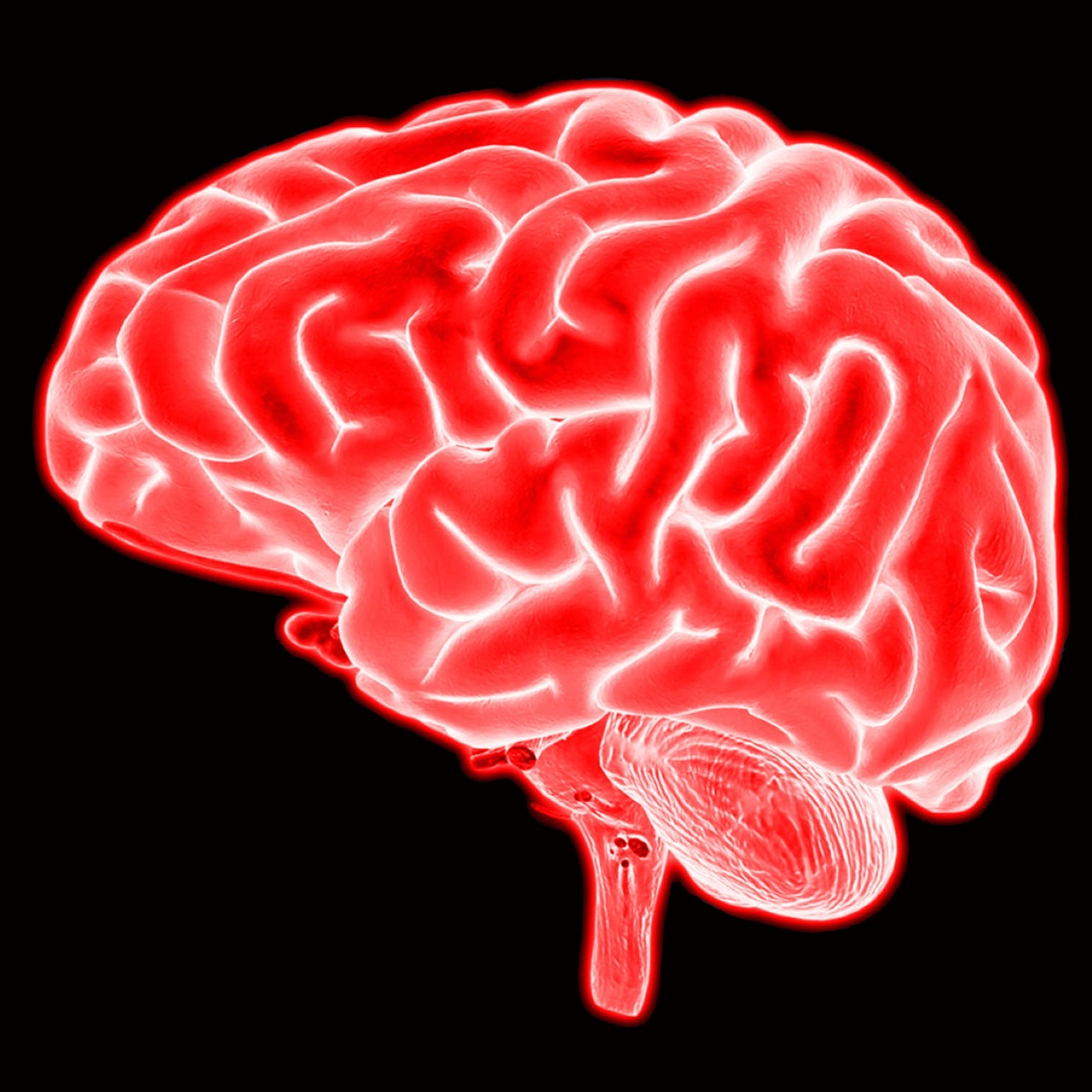
The Historical Context of Neuroscience and Philosophy
Understanding the historical context of neuroscience and philosophy is akin to peering through a time machine, revealing how these two fields have intertwined over centuries to shape our contemporary understanding of the human mind and behavior. From the ancient philosophers who pondered the essence of the soul to the modern neuroscientists mapping brain activity, the journey of these disciplines is rich and complex. In ancient Greece, figures like Socrates and Plato laid the groundwork for philosophical inquiry, questioning the nature of existence and the mind's role in shaping our reality. They were among the first to explore concepts of consciousness, albeit through a metaphysical lens.
Fast forward to the Enlightenment, where thinkers such as Descartes famously posited the idea of dualism, suggesting a distinct separation between mind and body. This notion sparked debates that continue to resonate today, as it raises fundamental questions about our identity and the essence of human experience. Meanwhile, the field of neuroscience began to take shape in the 19th century, with pioneers like Charles Bell and Francois Magendie making significant strides in understanding the nervous system. Their work laid the foundation for a more empirical approach to studying the brain, marking a departure from purely philosophical speculation.
As neuroscience evolved, it began to challenge long-held philosophical beliefs. The advent of technologies such as fMRI and EEG allowed scientists to observe brain activity in real-time, providing insights that were previously unimaginable. This shift prompted a reevaluation of philosophical positions, with many scholars questioning the implications of these findings on concepts like free will, consciousness, and personal identity. The dialogue between neuroscience and philosophy has become increasingly dynamic, with each field informing and challenging the assumptions of the other.
In recent years, interdisciplinary collaborations have emerged, blending insights from both realms. This fusion not only enhances our understanding of human nature but also raises important ethical questions about the implications of brain research. As we delve deeper into the workings of the mind, we must consider how these discoveries affect our views on morality, responsibility, and the very essence of what it means to be human. The historical context of neuroscience and philosophy is not just a tale of evolution; it is a living narrative that continues to unfold, inviting further exploration and dialogue.

The Role of Consciousness in Human Nature
Consciousness is not just a buzzword; it's the very essence of what it means to be human. It encompasses our thoughts, feelings, perceptions, and the intricate tapestry of self-awareness that defines our existence. Think about it: without consciousness, would we even know we exist? This profound question leads us down a rabbit hole of exploration, intertwining neuroscience and philosophy as we seek to understand the depths of our minds.
In the realm of neuroscience, consciousness is often viewed through a biological lens. Researchers dive into the complex workings of the brain, examining how neural connections and brain activity correlate with our awareness. For instance, studies using brain imaging techniques have shown that specific areas of the brain light up when we engage in various conscious activities, from simple tasks like recognizing a face to more complex ones like solving a math problem. These findings suggest that consciousness is not just a mystical phenomenon but is deeply rooted in our brain's physical structure.
However, the philosophical implications of these findings are where things get really interesting. Philosophers challenge the notion that consciousness can be fully explained by brain activity alone. They argue that subjective experiences—like the taste of chocolate or the feeling of love—cannot be reduced to mere neural processes. This leads to a fascinating debate: can we ever truly understand consciousness if we only focus on the brain? Or is there something more, something ineffable that escapes scientific scrutiny?
To illustrate this point, consider the following table that highlights the contrasting views of neuroscience and philosophy regarding consciousness:
| Perspective | Viewpoint |
|---|---|
| Neuroscience | Consciousness arises from brain activity and can be studied through scientific methods. |
| Philosophy | Consciousness involves subjective experiences that cannot be fully explained by physical processes. |
This ongoing dialogue between neuroscience and philosophy not only enriches our understanding of consciousness but also raises critical questions about the nature of reality itself. How do our perceptions shape our experiences? Are we merely observers of our thoughts, or are we active participants in the creation of our reality? These questions compel us to consider the intricate relationship between consciousness and human nature.
Moreover, the role of consciousness extends beyond mere awareness; it influences our decisions, relationships, and moral compass. For example, when we make choices, our consciousness allows us to weigh options, reflect on past experiences, and consider future consequences. This cognitive process is what sets humans apart from other species. It's like being the captain of a ship, steering through the turbulent waters of life with the ability to change direction based on our insights and reflections.
In conclusion, the role of consciousness in human nature is a multifaceted topic that invites continuous exploration. As neuroscience advances our understanding of the brain, philosophy challenges us to look deeper into the essence of our experiences. Together, these fields illuminate the complexities of consciousness, urging us to appreciate the profound nature of what it means to be human.
- What is consciousness? Consciousness refers to the state of being aware of and able to think and perceive one's surroundings, thoughts, and feelings.
- How do neuroscience and philosophy intersect? Neuroscience provides insights into the biological basis of consciousness, while philosophy examines the implications of these findings on our understanding of self and existence.
- Can consciousness be fully explained by brain activity? While neuroscience offers valuable insights, many philosophers argue that subjective experiences cannot be entirely reduced to neural processes.
- Why is understanding consciousness important? Understanding consciousness helps us explore the nature of reality, free will, and our moral responsibilities as human beings.
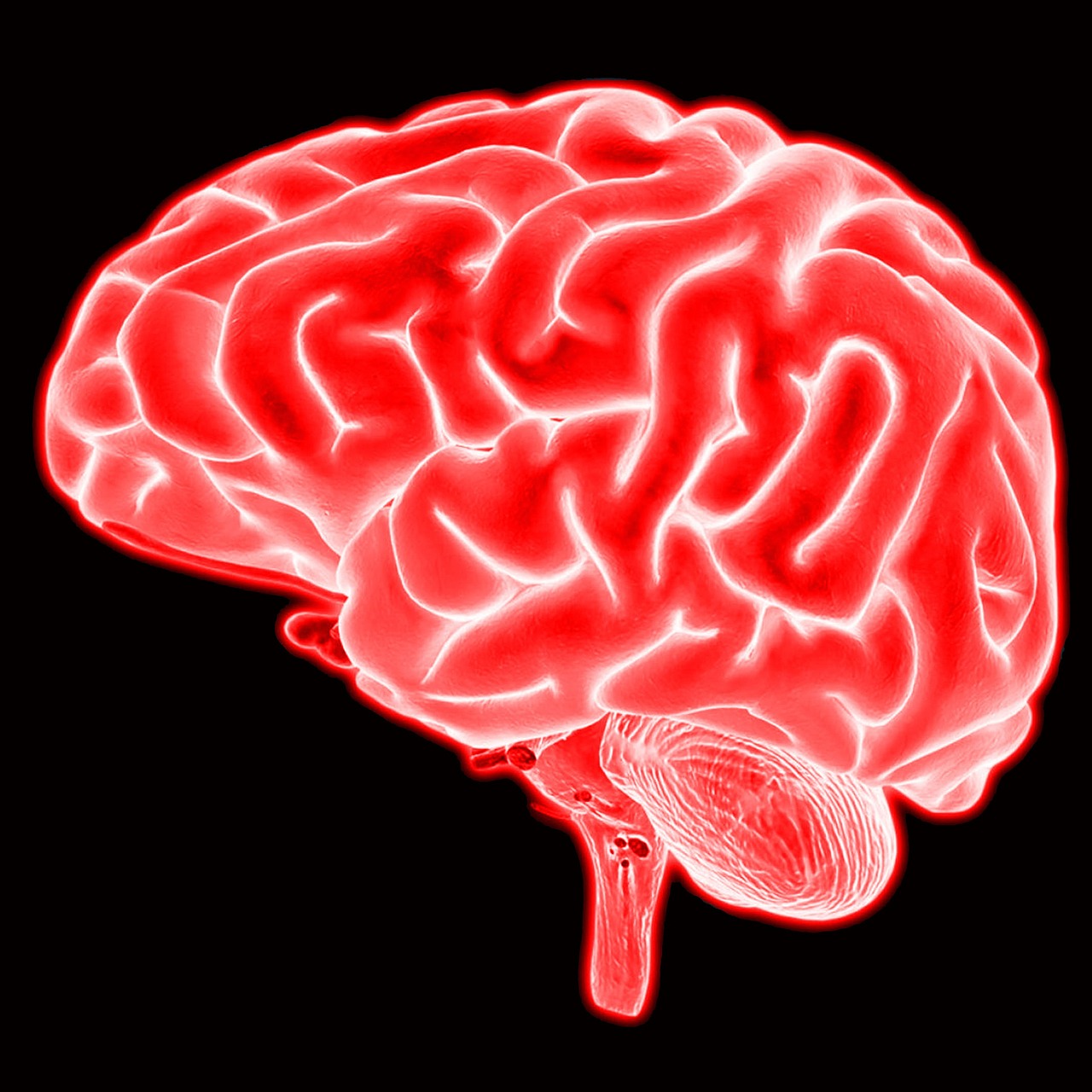
Neuroscientific Perspectives on Consciousness
When we dive into the realm of neuroscience, the exploration of consciousness takes center stage, revealing a fascinating tapestry woven from biology, psychology, and philosophy. Neuroscience delves into the intricate workings of the brain, trying to decode how our neural pathways give rise to the rich tapestry of human experience. Imagine your brain as a complex orchestra, where each neuron plays its part in creating the symphony of consciousness. But how does this orchestra come together to produce the music of awareness?
One of the primary focuses of neuroscientific research is understanding the relationship between brain activity and consciousness. Studies utilizing advanced imaging techniques, such as fMRI (functional Magnetic Resonance Imaging) and EEG (Electroencephalography), have shed light on how specific brain regions activate during various conscious states. For instance, when you're engaged in deep thought or problem-solving, certain areas of the prefrontal cortex light up like a neon sign, indicating that something significant is happening in your mind.
However, the question remains: can we truly capture the essence of consciousness through these biological markers? Neuroscientists argue that by mapping brain activity, we can gain insights into the cognitive processes underlying our thoughts, emotions, and perceptions. This perspective aligns with the idea that consciousness can be understood as a product of neural interactions, much like how a computer processes information. Yet, this raises profound questions about the subjective experience of being human. After all, can a mere collection of electrical impulses and chemical reactions account for the richness of our feelings, dreams, and self-awareness?
To illustrate this further, consider the concept of the neural correlates of consciousness (NCC). These are the specific brain states that correspond to conscious experiences. Researchers have identified various NCCs, including:
- The thalamus, which acts as a relay station for sensory information.
- The cerebral cortex, particularly the areas involved in higher-order processing.
- The default mode network, which is active during introspective thought and daydreaming.
While these findings are groundbreaking, they also invite skepticism. Philosophers argue that understanding the brain's mechanics doesn’t necessarily unravel the mystery of consciousness. In fact, some propose that consciousness might be more than just a byproduct of neural activity; it could be a fundamental aspect of reality itself. This brings us to the philosophical debates surrounding the nature of consciousness, where questions about the qualia—the subjective qualities of experiences—take precedence. For example, how do we explain the unique experience of seeing the color red or tasting chocolate? These sensations cannot be fully explained by neural processes alone.
In essence, the neuroscientific perspective on consciousness is a double-edged sword. On one side, it offers a treasure trove of insights into how our brains function and how consciousness emerges from complex interactions. On the other, it challenges us to confront the limitations of a purely biological understanding of our inner lives. As we continue to unravel the mysteries of the brain, we must remain open to the idea that consciousness may encompass more than what meets the eye—or the brain, for that matter.
- What is consciousness? Consciousness refers to the state of being aware of and able to think about one's own existence, thoughts, and surroundings.
- How does neuroscience study consciousness? Neuroscience studies consciousness by examining brain activity and identifying neural correlates associated with various conscious states.
- Can consciousness be fully explained by neuroscience? While neuroscience provides valuable insights, many argue that it cannot completely explain the subjective experience of consciousness.
- What are neural correlates of consciousness? Neural correlates of consciousness are specific brain states or processes that correspond to conscious experiences.
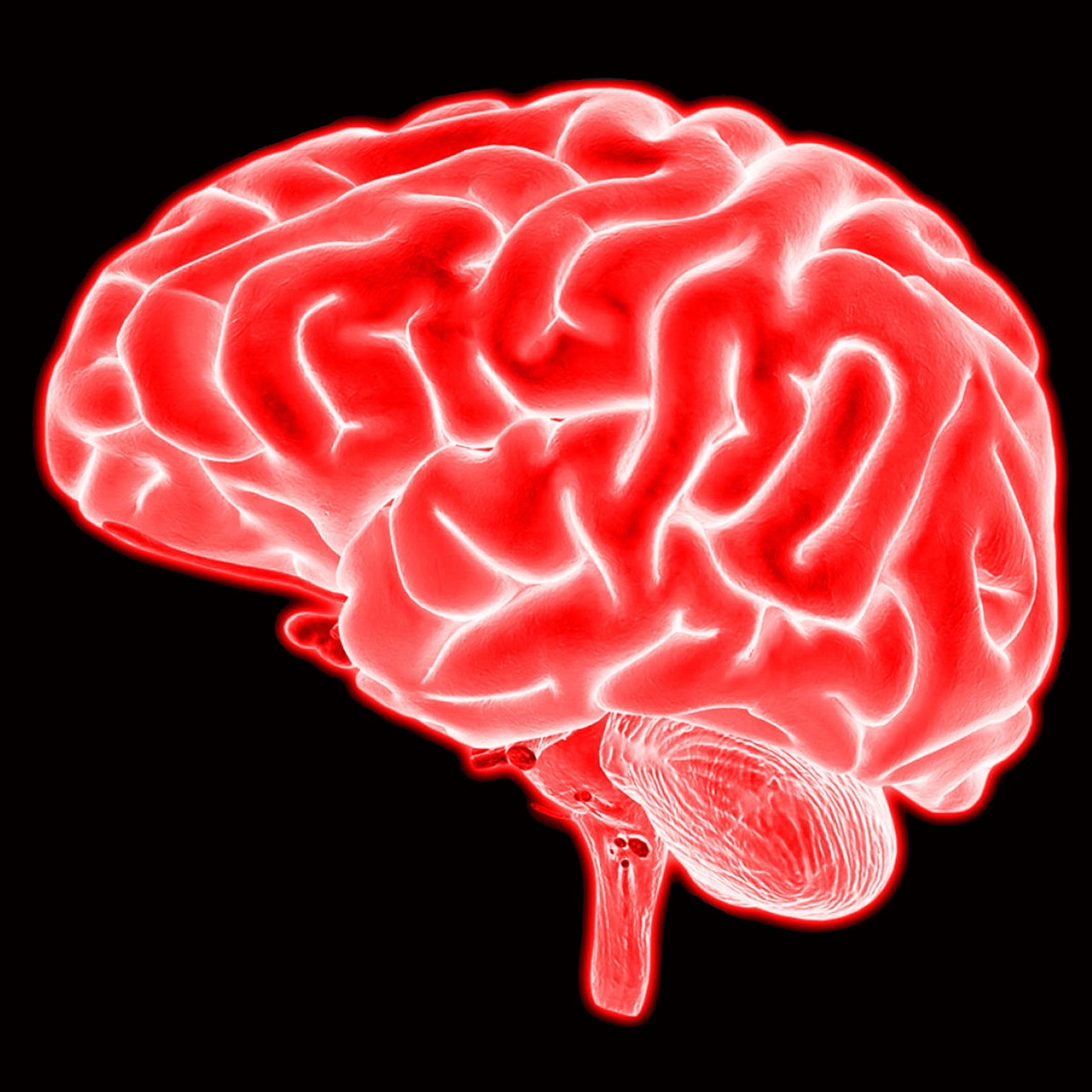
The Brain's Role in Perception
Perception is more than just a passive reception of stimuli; it is an active, intricate process that shapes our understanding of the world around us. At its core, perception involves the brain interpreting sensory information from our environment, transforming raw data into meaningful experiences. Imagine your brain as a master conductor in an orchestra, where each sensory input—be it sight, sound, touch, taste, or smell—plays a unique instrument. The brain harmonizes these inputs, allowing us to experience a cohesive reality. But how does this remarkable feat occur?
Neuroscience has made significant strides in unraveling the complexities of perception. Studies have shown that different areas of the brain are responsible for processing various types of sensory information. For example, the occipital lobe is primarily involved in visual processing, while the temporal lobe plays a crucial role in auditory perception. This specialization allows the brain to efficiently manage and interpret the vast array of stimuli we encounter every day.
To illustrate this, consider how we perceive a simple object, like an apple. When you look at it, light reflects off the apple and enters your eyes, where it is converted into electrical signals. These signals travel through the optic nerve to the occipital lobe, where they are transformed into a visual representation of the apple. But perception doesn't stop there; your brain also engages memory and contextual information. Perhaps you remember the taste of a juicy apple or the feeling of its smooth skin. This integration of sensory data and prior experiences enriches your perception, making it a multi-dimensional experience.
Moreover, perception is influenced by various factors, including attention, expectation, and past experiences. For instance, if you are hungry, your brain may heighten your awareness of food-related stimuli, making an apple appear more vibrant and appealing. This phenomenon demonstrates how perception is not merely about what is present in our environment but also about how our brain interprets and prioritizes this information based on our current state and needs.
In summary, the brain's role in perception is a dynamic interplay of sensory processing, memory, and contextual understanding. It highlights the complexity of our experiences and the incredible capabilities of the human mind. As neuroscience continues to explore these mechanisms, we gain deeper insights into how our brains construct our reality, challenging our understanding of what it means to perceive the world around us.
- What is perception? Perception is the process by which the brain interprets sensory information to create meaningful experiences of the world.
- How does the brain process sensory information? Different areas of the brain specialize in processing different types of sensory input, such as visual or auditory information.
- Can perception be influenced by emotions? Yes, emotions and past experiences can significantly impact how we perceive stimuli in our environment.
- Is perception the same for everyone? Perception can vary from person to person due to individual differences in brain function, experiences, and context.

Philosophical Implications of Brain Studies
As we delve into the realm of brain studies, we encounter a fascinating intersection where neuroscience and philosophy converge. This relationship prompts us to ponder some of the most profound questions about our existence. For instance, can we truly understand consciousness merely through the lens of brain activity? Neuroscience provides us with a plethora of data regarding neural correlates of consciousness, yet does this data encapsulate the entirety of our subjective experiences? This question is at the heart of ongoing philosophical debates.
One of the most significant philosophical implications arises from the concept of reductionism. Neuroscientific findings often lean towards a reductionist view, suggesting that complex mental states can be broken down into simpler neural processes. However, this perspective raises concerns: does it diminish the richness of human experience? Critics argue that by reducing our thoughts and feelings to mere brain activity, we risk overlooking the intricate tapestry of emotions, relationships, and cultural influences that shape our consciousness. In essence, can we truly capture the essence of being human through a purely biological framework?
Moreover, the question of qualia—the individual instances of subjective experience—further complicates the dialogue between neuroscience and philosophy. For instance, when we experience the color red, what is it that we actually perceive? Neuroscience can explain the brain's processing of light wavelengths, but can it articulate the personal experience of "redness"? This distinction between objective measurements and subjective experiences highlights a significant philosophical challenge: the hard problem of consciousness. This problem, coined by philosopher David Chalmers, emphasizes the difficulty of explaining why and how we have qualitative experiences, despite our understanding of the physical processes involved.
Furthermore, the implications of brain studies extend into the realm of identity and selfhood. If our thoughts, memories, and emotions can be mapped to specific neural activities, what does that mean for our understanding of personal identity? Are we simply the sum of our neural connections, or is there something more profound that constitutes our sense of self? This question beckons us to reflect on the continuity of identity over time, especially in light of experiences such as memory loss or brain injuries. As we navigate through these philosophical waters, we must consider whether our identity is fixed or if it evolves in tandem with our brain's physical state.
In conclusion, the philosophical implications of brain studies are vast and complex. They challenge us to rethink our assumptions about consciousness, identity, and the nature of reality itself. As neuroscience continues to unveil the mysteries of the brain, it is crucial that we engage in philosophical inquiry to ensure that our understanding of human nature remains holistic and multifaceted. Only by embracing both perspectives can we hope to grasp the intricacies of the human experience fully.
- What is the hard problem of consciousness? The hard problem of consciousness refers to the difficulty of explaining why and how we have qualitative experiences, despite understanding the physical processes in the brain.
- How does neuroscience impact our understanding of free will? Neuroscience raises questions about whether our choices are determined by neural processes, impacting debates around autonomy and moral responsibility.
- Can subjective experiences be fully explained by brain activity? While neuroscience provides insights into brain functions, many argue that subjective experiences, or qualia, cannot be fully captured by objective measurements alone.

Philosophical Theories of Mind
When diving into the intricate world of the mind, we stumble upon a rich tapestry of philosophical theories that attempt to unravel the complexities of human consciousness. These theories serve as frameworks, guiding our understanding of the mind-body relationship and sparking debates that have persisted for centuries. Among the most prominent theories are dualism, physicalism, and idealism. Each of these perspectives offers unique insights and raises profound questions about what it means to be human.
Dualism, famously championed by René Descartes, posits that the mind and body are fundamentally distinct entities. This theory suggests that while our physical bodies operate within the realm of the tangible, our minds exist in a non-physical domain. Imagine a puppet show where the puppets represent our bodies, and the puppeteer symbolizes the mind; the puppeteer controls the puppets but remains separate from them. This separation raises intriguing questions about consciousness: If the mind is separate from the body, how do they interact? Can a non-physical mind influence physical actions, or are they merely parallel processes?
On the other hand, physicalism argues that everything about the mind can be explained through physical processes. This perspective aligns closely with the findings of neuroscience, suggesting that our thoughts, emotions, and consciousness are merely products of brain activity. Think of it as a computer: the hardware (the brain) runs the software (the mind). If we can understand the workings of the brain, we can ultimately understand the mind. However, this raises a critical question: Can the richness of human experience, such as love, joy, or pain, truly be captured by biological explanations alone?
Then we have idealism, which flips the script by asserting that reality is fundamentally mental. According to this view, the material world is an extension of the mind, and our perceptions shape our reality. Picture a painter creating a masterpiece; the canvas (the world) is brought to life through the artist's (the mind's) vision. This theory challenges the physicalist view by suggesting that our understanding of reality is not merely a reflection of physical processes but is instead shaped by our consciousness. It invites us to ponder: Is the world we perceive truly 'real,' or is it merely a construct of our minds?
As we explore these theories, it becomes clear that they do not exist in isolation. Instead, they interact and influence one another, contributing to an ongoing dialogue about the nature of consciousness. For instance, advancements in neuroscience often challenge dualistic notions, while philosophical inquiries push physicalists to consider the qualitative aspects of experience that may elude purely physical explanations.
In the table below, we summarize these major philosophical theories of mind, highlighting their key features and implications:
| Theory | Key Features | Implications |
|---|---|---|
| Dualism | Mind and body are distinct; non-physical mind influences the physical body. | Questions about interaction; challenges scientific explanations of consciousness. |
| Physicalism | Mind is a product of physical processes; everything can be explained biologically. | Aligns with neuroscience; may overlook qualitative aspects of experience. |
| Idealism | Reality is fundamentally mental; perceptions shape our understanding of the world. | Challenges materialism; emphasizes the role of consciousness in defining reality. |
In conclusion, the philosophical theories of mind provide a rich landscape for exploring the fundamental questions of human existence. They compel us to reflect on our own experiences, challenging us to consider how our understanding of the mind influences our perceptions of reality. As we continue to bridge the gap between neuroscience and philosophy, we may find that these theories not only coexist but also enrich our comprehension of what it truly means to be human.
- What is dualism? Dualism is the theory that the mind and body are separate entities, suggesting that the mind exists independently of the physical brain.
- How does physicalism differ from dualism? Physicalism asserts that everything about the mind can be explained through physical processes in the brain, while dualism maintains a distinction between the mind and body.
- What are the implications of idealism? Idealism suggests that reality is shaped by our perceptions and consciousness, challenging the notion of a purely material world.

Ethics in Neuroscience and Philosophy
The intersection of neuroscience and philosophy not only deepens our understanding of the human mind but also raises a plethora of ethical considerations. As we delve deeper into the workings of the brain, we must confront questions that challenge our perceptions of autonomy, consent, and moral responsibility. For instance, as neuroscience uncovers the neural mechanisms behind decision-making, one might wonder: are our choices genuinely ours, or are they merely the result of biological processes? This dilemma touches on the very essence of what it means to be human.
Moreover, the rapid advancements in neurotechnology, such as brain-computer interfaces and neuroenhancement techniques, bring forth ethical dilemmas that society must address. These technologies hold the potential to revolutionize our lives, enabling us to enhance cognitive abilities or even restore lost functions. However, they also raise significant concerns regarding privacy and consent. For example, if a device can read our thoughts or influence our decisions, who owns that information? And what happens if that power falls into the wrong hands?
In grappling with these issues, philosophers and neuroscientists alike must engage in rigorous ethical inquiry. They must consider the implications of their findings and the technologies they develop. A crucial aspect of this dialogue involves examining the moral responsibilities of researchers and practitioners in the field. Are they accountable for the consequences of their work, especially when it comes to the potential for misuse or harm? These questions are not just theoretical; they have real-world implications that affect individuals and society as a whole.
To illustrate the ethical landscape, consider the following table that summarizes key ethical issues in neuroscience and their philosophical implications:
| Ethical Issue | Implications |
|---|---|
| Free Will vs. Determinism | Challenges the notion of moral responsibility and accountability. |
| Privacy Concerns | Raises questions about ownership of thoughts and mental data. |
| Neuroenhancement | Concerns about fairness, access, and the definition of 'normal' cognitive function. |
| Informed Consent | Challenges in ensuring participants fully understand the implications of neuroresearch. |
As we navigate this complex terrain, it becomes clear that the collaboration between neuroscience and philosophy is not merely academic; it is a pressing necessity. The ethical frameworks established by philosophers can guide neuroscientists in their research, ensuring that advancements in understanding the human brain do not come at the expense of our fundamental rights and moral values. It is a delicate balance, akin to walking a tightrope, where one misstep could lead to profound consequences for individuals and society.
- What are the main ethical concerns in neuroscience? Ethical concerns include issues of free will, privacy, consent, and the implications of neuroenhancement.
- How does philosophy contribute to neuroscience? Philosophy provides ethical frameworks that help guide neuroscientific research and its applications.
- Why is informed consent important in neuroresearch? Informed consent is crucial to ensure participants understand the implications and risks associated with research involving their brain data.
- What role do brain-computer interfaces play in ethical discussions? Brain-computer interfaces raise concerns about privacy, autonomy, and the potential for manipulation of thoughts and behaviors.
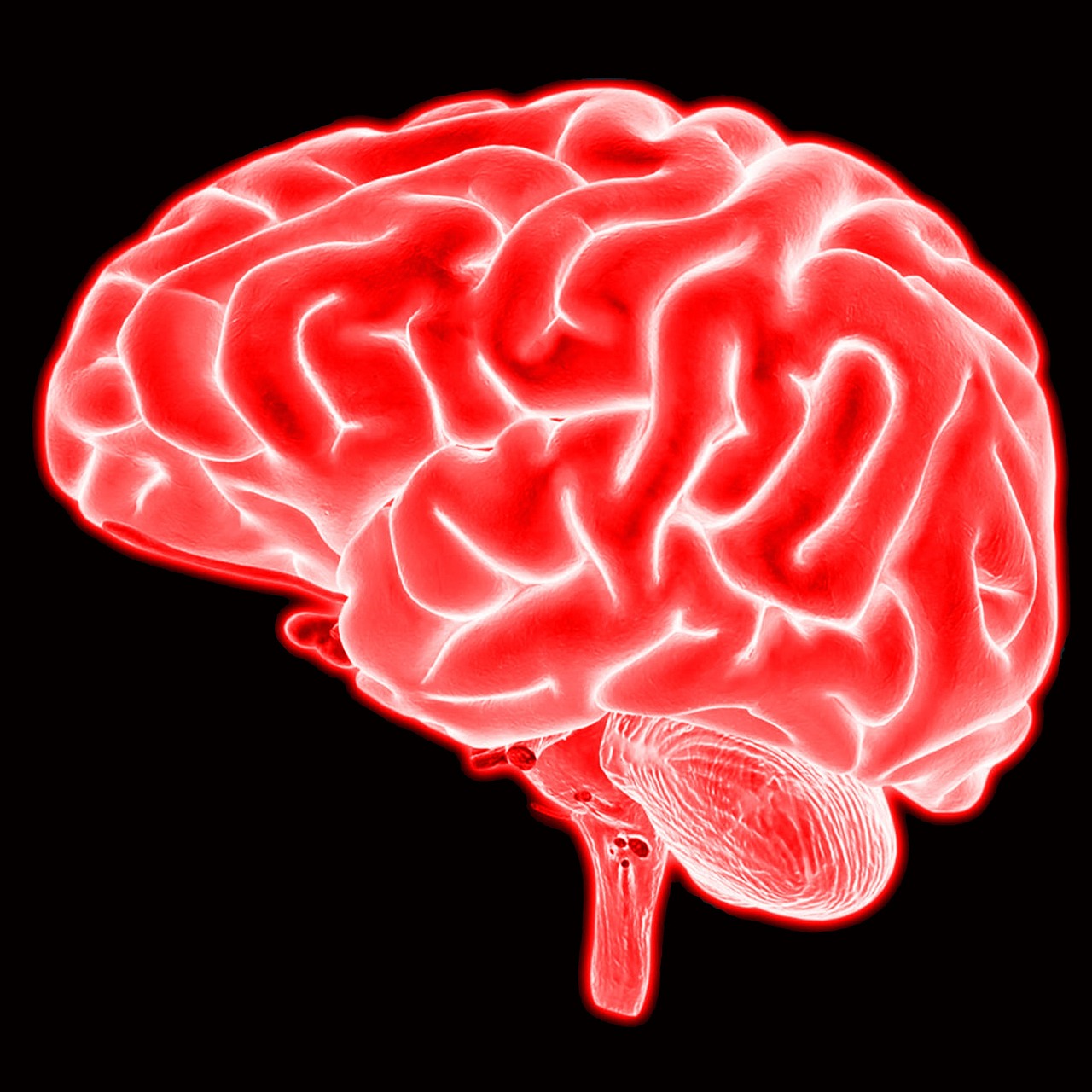
Neuroscience and Free Will
The debate surrounding free will is as old as philosophy itself, but in recent years, the field of neuroscience has thrown a new twist into the mix. Imagine standing at a crossroads, where every choice you make feels like a step into the unknown. Are you truly the one steering the ship, or are you merely a passenger along for the ride? This question has intrigued thinkers for centuries, and neuroscience is now providing fresh insights that challenge our traditional notions of autonomy.
At the heart of this discussion lies the question: are our decisions the result of conscious thought, or are they predetermined by our brain's neural processes? Neuroscientific studies, particularly those employing brain imaging techniques, have shown that our brains often initiate actions before we become consciously aware of them. This phenomenon raises eyebrows and fuels the argument that what we perceive as free will might just be an illusion. For instance, in a famous experiment by Benjamin Libet, participants were asked to make a spontaneous decision while their brain activity was monitored. The results indicated that brain activity predicting the decision occurred several hundred milliseconds before the participants reported being aware of their choice.
These findings have profound implications for our understanding of moral responsibility. If our choices are dictated by neural mechanisms beyond our control, can we truly be held accountable for our actions? This question is not just theoretical; it has real-world ramifications in the legal system, where concepts of culpability and punishment hinge on the assumption that individuals possess free will. As we delve deeper into the workings of the brain, we must grapple with the implications of these discoveries.
Moreover, the neuroscience of free will invites us to consider the ethical dimensions of our understanding. If we accept that our decisions are influenced, if not entirely determined, by biological processes, what does that mean for our concepts of justice and morality? Should we adjust our legal frameworks to account for the neuroscience of behavior? These questions are not easily answered, and they highlight the necessity for a dialogue between neuroscientists and philosophers.
In summary, the intersection of neuroscience and free will presents a complex tapestry of ideas. While neuroscience offers valuable insights into the mechanisms of decision-making, it also challenges us to reconsider the very foundations of our beliefs about human autonomy. As we continue to explore this fascinating domain, we must remain open to the possibility that our understanding of free will may evolve, reshaping not only our philosophical perspectives but also our societal norms.
- What is free will? Free will is the ability to make choices that are not determined by prior causes or divine intervention.
- How does neuroscience challenge the concept of free will? Neuroscience suggests that many decisions are made subconsciously, leading to questions about the extent of our conscious control.
- What are the implications for moral responsibility? If our choices are influenced by neural processes, it complicates the concept of moral accountability.
- Can we reconcile neuroscience with philosophical views on free will? Yes, ongoing discussions between the two fields aim to bridge the gap and provide a more comprehensive understanding.

Ethical Implications of Neurotechnology
As we delve into the realm of neurotechnology, we encounter a fascinating yet daunting landscape filled with ethical dilemmas. With innovations like brain-computer interfaces and neurostimulation devices sprouting up like mushrooms after rain, the implications for society are profound. Imagine a world where thoughts could be transmitted directly to machines or where cognitive enhancements could elevate human capabilities beyond natural limits. Sounds like science fiction, right? But it’s rapidly becoming a reality, and with these advancements come significant ethical questions that we must grapple with.
One of the primary concerns revolves around privacy. When we start to interface directly with technology using our brains, what happens to our most intimate thoughts? Are they now susceptible to hacking or unauthorized access? The idea of someone being able to read or manipulate our thoughts is not just unsettling; it's a potential violation of our very essence as individuals. As we navigate this uncharted territory, we must ask ourselves: how do we protect the sanctity of our minds?
Moreover, the question of consent becomes critical. Who gets to decide who can use neurotechnology? If cognitive enhancements become available, will they be accessible to everyone, or will they create a divide between the haves and the have-nots? Imagine a society where only the wealthy can afford enhancements that boost intelligence or memory retention. This scenario raises questions about fairness and equality in opportunities. Can we truly call it progress if it leads to greater inequality?
Additionally, the potential for manipulation looms large. What if neurotechnology is used to influence behavior or thoughts without a person's knowledge? The ethical implications of such capabilities are staggering. For instance, could a government use neurotechnology to control its citizens? The line between enhancement and coercion could easily blur, leading to a society where free will is compromised. As we develop these technologies, we must maintain a vigilant stance to ensure they are used ethically and responsibly.
In light of these concerns, it’s essential for philosophers, ethicists, and scientists to collaborate and create robust frameworks that guide the development and implementation of neurotechnology. We need to establish ethical guidelines that prioritize human dignity, autonomy, and privacy. The stakes are high, and the consequences of inaction could be dire.
To summarize, the ethical implications of neurotechnology are complex and multifaceted. As we stand on the brink of a new era in human enhancement, we must engage in deep, thoughtful discussions about how to navigate these challenges. The future of our minds—and indeed, our humanity—depends on it.
- What is neurotechnology? Neurotechnology refers to the tools and techniques that interface with the nervous system to monitor or manipulate brain activity.
- What are the ethical concerns related to neurotechnology? Major concerns include privacy, consent, inequality, and the potential for manipulation of thoughts and behaviors.
- How can we ensure ethical use of neurotechnology? Establishing guidelines and frameworks that prioritize human dignity and autonomy is crucial for ethical development.
- What are brain-computer interfaces? These are devices that allow direct communication between the brain and external devices, often used for medical or enhancement purposes.
Frequently Asked Questions
- What is the relationship between neuroscience and philosophy?
Neuroscience and philosophy intersect to explore fundamental questions about human nature, consciousness, and the mind-body relationship. While neuroscience provides insights into the biological mechanisms of the brain, philosophy delves into the implications of these findings, questioning the nature of consciousness and our understanding of self-awareness.
- How does neuroscience contribute to our understanding of consciousness?
Neuroscience investigates the brain's activity patterns and how they correlate with conscious experiences. By studying brain functions, researchers can uncover how sensory information is processed and interpreted, which helps us understand the complexities of human cognition and behavior.
- What are some philosophical theories related to the mind-body relationship?
Philosophical theories such as dualism and physicalism provide different perspectives on the mind-body relationship. Dualism posits that the mind and body are distinct entities, while physicalism argues that everything about the mind can be explained through physical processes in the brain. These theories spark ongoing debates about the nature of consciousness.
- What ethical considerations arise from advancements in neuroscience?
Advancements in neuroscience raise ethical questions regarding brain research, cognitive enhancement, and the implications for free will. Issues of privacy, consent, and moral accountability come into play, especially with the development of neurotechnology, such as brain-computer interfaces, which can potentially manipulate human behavior.
- Is free will compatible with our understanding of neuroscience?
The debate over free will and neuroscience revolves around whether our choices are predetermined by neural processes or if we possess genuine autonomy. This discussion impacts our views on moral responsibility and accountability, challenging the notion of free will in light of scientific discoveries about brain function.
- How do philosophical discussions challenge neuroscientific findings?
Philosophical discussions often question whether neuroscientific findings can fully explain subjective experiences. For instance, can brain activity alone account for the richness of human consciousness? These inquiries encourage a deeper exploration of what it means to be human and how we interpret our experiences.







